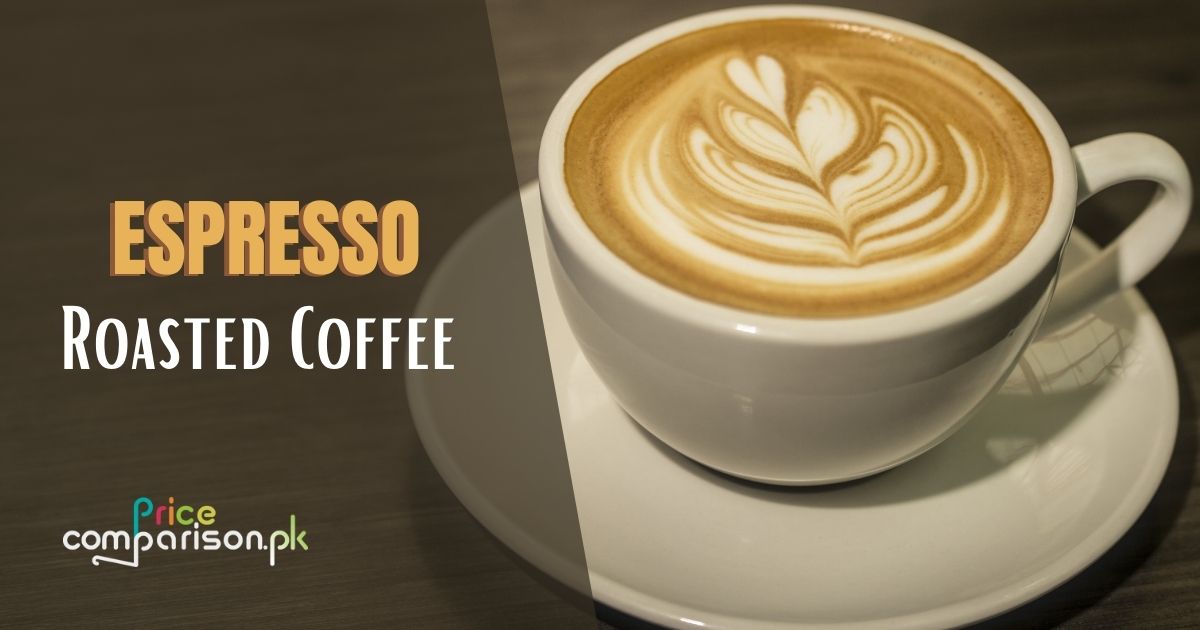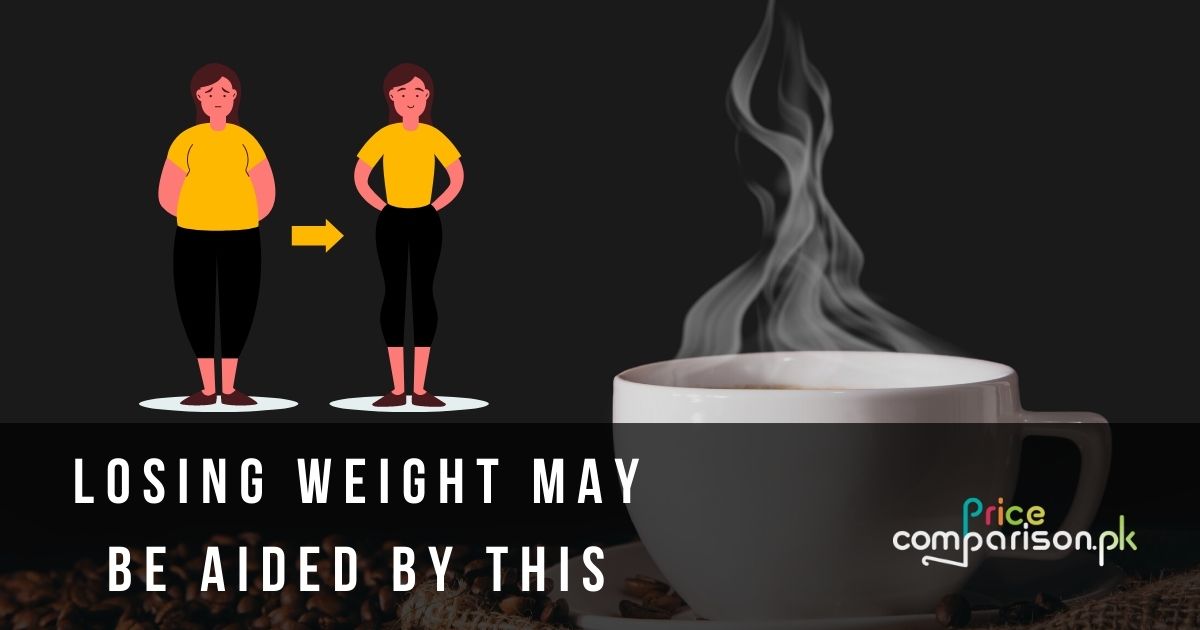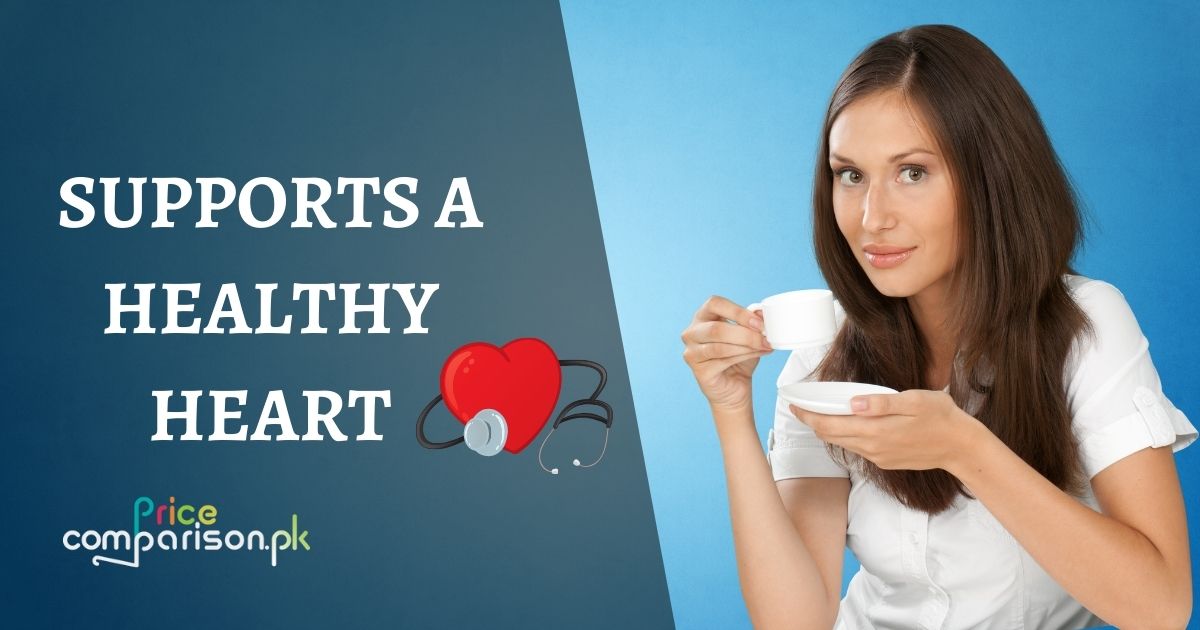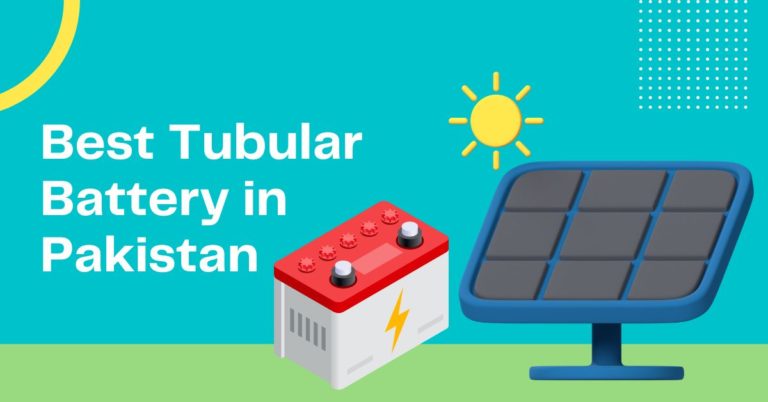The Essential Guide to Best Coffee Brands in Pakistan 2023
Coffee Lovers wanna know about the best coffee brands in Pakistan so we are here to solve this puzzle once in for all. But before continuing let’s discuss how it started. Coffee is one of the most highly consumed beverages in the world. It plays an important role in cheering up your mood.
There are different types of Coffee that are brewed with other methods. No matter how many types of coffee exist, the quality of coffee beans or coffee powder matters a lot that making its taste exceptional
Have you ever wondered when you drink coffee at cafes, it tastes much different, and when you make your coffee at home, it is totally different?
There are many reasons behind this, such as temperature, item ratios, the quantity of water, milk, and coffee beans or powder.
Most importantly, the quality of coffee makes up a perfect cup of coffee like Starbucks or Nescafe. In order to find the best quality coffee, continue reading this article. We have shortlisted some of the best coffee in Pakistan.
The word “coffee” was coined in the Middle East in the 15th century. However, its ancestry can be traced back to the ancient Ethiopian plateau forests.
A goat servant named Kaldi made the first known invention of coffee here. Sheep became more active when they had some berries from the tree.
That’s how coffee got its start: someone had the bright idea to steep some berries in hot water to make a drink.
Coffee is a caffeinated beverage that is consumed on a daily basis and requires a lot of brewing time.
Around 82% of people drink two cups of coffee a day, according to proven research. Drinking coffee, especially black coffee, is valuable because it stimulates the brain and improves concentration.
Different Types of Coffee Brands:

There is a wide selection of coffee to choose from. To help narrow down your search, here are a few of our favourite Pakistani coffees
Espresso:

Using finely ground dark and roasted coffee beans, espresso can be made by adding hot water
to the already ground coffee. That resulted in a thicker cup of coffee than usual. In contrast, Espresso is the purest form of coffee elixir.
Americano:

Americans served their troops Americano during World War II, one of the most popular types of brew. For that American coffee, they merely diluted their espresso with water and served it to their customers. If you’re looking for a good place to get an Americano, head to Gloria Jeans.
Latte:

Steamed milk covered in foam makes up the majority of the Latte, which contains one-third of espresso. It is also known as milk coffee,
Because it is thick and creamy in texture. – It’s one of the world’s most expensive coffees. Particularly popular in Pakistan, where the population enjoys drinking milk tea and, to a lesser extent, coffee. Dunkin Donuts is your best bet if you’re looking for the best Latte.
Cappuccino:

Compared to a latte, the cappuccino has a thicker top layer with cinnamon sprinkled on it. It’s no wonder that cappuccino is regarded as one of the best coffees because it has a shot of espresso, a shot of steamed milk, and foamy milk on top with cinnamon powder sprinkled on top. The second cup of coffee has Pakistan’s finest cappuccino.
Mocca:

Coffee, steamed milk, chocolate powder, and cinnamon make up the most delicious Mocca. This coffee has a chocolate and coffee taste in one cup.
Most Used coffee brands in Pakistan:

There are a variety of high-quality coffee options available in Pakistan, but the following are the
best-known coffee brands in the country that are readily available:
- Nescafe
- Lavazza
- Red Berry Roasters coffee
- Raaz Unveiled Coffee
- Batsam
Nescafe:

Nestle is an essential part of any list of the best coffee brands in Pakistan.
Their coffee brand, Nescafe, is truly incredible. It’s unique because it comes in a variety of flavours, each with a distinct taste.
Nescafe Classic is a must-try if you’re looking for a basic aromatic coffee to start your day. With just one sip of this decadent coffee, you’ll feel refreshed. Try Nescafe Gold if you’re looking for a sweeter cup of joe.
These aromatic Arabica coffee beans are sure to enhance your morning routine.
Additional coffee drink options are also available for hot summer days, making the brand a great choice. Two examples are Nescafe Chilled Mocha and Nescafe Chilled Latte. As far as coffee goes, Nestle’s offerings in Pakistan are among the best. It’s worth a try if you’re looking for a good cup of joe.
Lavazza:

Those looking to find authentic Italian coffee should turn to Lavazza. It’s their speciality to produce high-quality coffee beans and blends that give their customers the best aroma experience they can.
By focusing solely on the production of organic coffee, they set themselves apart from the competition.
As a result, their coffee is healthier, and their customers may enjoy a more authentic coffee flavour as a result of this process.
Their most popular coffee blends are Qualita Rossa, Qualita Oro-Perfect Sonatas, and Lavazza Decaffeinated Ground Coffee.
It’s the brand to choose if you want to roast your own coffee beans. They offer a wide variety of coffee beans from which you can create your own concoctions.
Red Berry Roasters coffee:

Self-explanatory caption. New to the coffee scene, Red Berry Roasters is looking to make a name for themselves.
For them, it’s all about providing customers with the best cup of coffee they can get their hands on. Coffee beans and blends from around the world are used to create this one-of-a-kind Coffee.
From Latin America to Africa, Red Berry Roasters serves customers from all over the world. I strongly recommend their Brazil Single Origin if you’re looking for a strong and flavorful cup of coffee.
The bitterness of the flavour is what gives it authenticity as a cup of coffee.
Raaz Unveiled Coffee:

The coffee at Raaz Unveiled is some of the best you’ll find at any of your favourite places to relax. Their customers’ preferences and preferred brewing methods are taken into consideration when they roast coffee beans for them.
There is no better time than right now to try some of their delicious coffee. The Raaz Signature Blend is the best option if you prefer an appetising cup of coffee.
Try their Premium Blend if you like your coffee with a hint of chocolate flavour. The best coffee brand in Pakistan is this one.
In addition, they offer a wide range of coffee flavours from around the globe. Raaz Unveiled sells coffee from all over the world, including Ethiopian and Colombian varieties.
Try Raaz Unveiled the next time you want to make coffee at home. I guarantee
you’ll never forget this once-in-a-lifetime opportunity.
Batsam:

The aroma and flavour of a cup of coffee can be achieved with just one cup of hot water and a teaspoon.
Pouring hot water into the cup is as simple as opening the lid and taking a sip. Blended perfectly, BATSAM coffee has an intoxicating aroma that will charm your senses.
People who drink more coffee are less likely to develop type 2 diabetes, according to research. Dark-roasted coffee reduces DNA strand breaks, which naturally occur but can lead to cancer or tumours if your cells do not repair.
Unique Benefits of Coffee:

Coffee is a drink that is known for its ability to help you stay focused and energised.
In fact, for many people, a morning cup of joe is an essential part of starting the day off right.
To top it all off, coffee has been linked to various health benefits, making it all the more reason to brew up some beans.
Coffee has been shown to have a number of health benefits, and this article examines nine of them.
Support for a healthy brain:

Coffee may help protect against certain neurological diseases, such as [Hypertension and Vascular dementia], according to some research, despite conflicting results.
Caffeine consumption was linked to a lower risk of Parkinson’s disease, according to a meta-analysis of 13 studies. For Brain cancer sufferers, caffeine has been shown to reduce symptoms and slow the progression of the disease over time ([9Trusted Source]).
People who drink more coffee are less likely to develop Hypertension, according to a meta-analysis of 11 observational studies in more than 29,000 people
Moderate coffee consumption has been linked to a reduced risk of [dementia] and cognitive decline has been linked to a reduced risk of [dementia].
Losing weight may be aided by this:

Weight loss may be improved by coffee’s ability to alter fat storage and improve gut health, according to some studies.
Even in men, a review of 12 studies found that those who drank the most coffee were less likely to be obese.
Another study found that women who drank more coffee had lower body fat percentages.
Coffee drinkers are 17 per cent more likely to meet suggested physical activity levels than those who drink less than one cup a day, according to a recent study.
Weight loss may be greatly helped by increased physical activity.
Reduced forms of depression:

People who drink coffee appear to be less susceptible to depression, according to some studies.
A study of seven studies found that people who drank one cup of coffee a day had an 8% lower risk of developing depression.
Drinking at least two cups of coffee a day was linked to a lower risk of depression than drinking just one cup a day, according to another study.
Moreover, a study of more than 200,000 people found that coffee consumption was associated with a lower risk of a suicide death.
Supports a healthy heart:

Drinking coffee may have health benefits for the heart, according to some studies.
According to one study, people who drink three to five cups of coffee a day are 15% less likely to develop heart disease.
According to another analysis of 21 studies, drinking three to four cups of coffee a day reduced the risk of stroke by 21%.
More than 21,000 people were studied in one study, and the results showed that those who drank more coffee had a lower risk of heart failure.
Caffeine, on the other hand, has the potential to impact [blood pressure levels]. As a result, people with uncontrolled blood pressure may need to limit or lower their caffeine intake.
Longevity could be enhanced:

Coffee’s numerous health benefits have led some researchers to hypothesise that it may help people live longer lives.
When it comes to coffee, one review of 40 studies found that those who drank two to three cups per day were less likely to die than those who drank less than one cup per day.
Similar findings were found in a study of 1,567 people who drank caffeinated coffee for 12 and 18 years of follow-up. Additionally, a lower risk of cancer death was found in people who drank at least one cup of coffee per day.
In a test-tube experiment, coffee was found to significantly apply the life span of yeast by protecting it from [free radicals].
More research is needed, however, to determine if this holds true for humans as well.
Enhances athletic ability:

Athletes who want to [improve performance] frequently turn to coffee as an athlete. Performance enhancers are also known as ergogenic aids.
[Drinking coffee before exercising]) was found to increase endurance and decrease perceived exertion in comparison to the control group in one review of nine studies
Drinking coffee was linked to improved physical performance and a faster gait speed in another study of 126 older adults, even after researchers accounted for factors such as the age of the participants and their physical activity levels.
Caffeine consumption can improve power output and time-trial completion by a small amount, according to an extensive review. However, because the findings were inconsistent, the researchers concluded that the effects of caffeine may differ between athletes.
Side Effects of Consuming Too Much Caffeine:

Coffee and tea are excellent sources of antioxidants and nutrients.
Caffeine, which is found in most flavours, has been shown to improve mood, metabolism, and both mental and physical performance
When consumed in small to moderate amounts, research shows that it is safe for the majority of people
Taking large amounts of caffeine, on the other hand, can have undesirable and even harmful side effects.
Tolerance to it depends heavily on genetics, according to studies. Some people are able to ingest much more caffeine than others without experiencing any negative side effects from
In addition, even a moderate dose of caffeine can cause side effects in those who aren’t used to it
Anxiety:

Increased alertness is a known side effect of caffeine.
Adenosine, a brain chemical that contributes to fatigue, is blocked by this medication. When adrenaline is released in this way, it increases energy levels because of the “fight-or-flight” response
But at higher doses, these effects can become more pronounced and cause anxiety and nervousness.
The American Psychiatric Association’s Diagnostic and Statistical Manual of Mental Disorders (DSM) lists four caffeine-related syndromes, including caffeine-induced anxiety disorder.
Most people experience nervousness, jitteriness, and other side effects from daily caffeine intakes of 1,000 mg or more, but those who are caffeine sensitive may experience the same side effects from even a moderate daily dose.
When taken in large quantities, small doses have been shown to cause rapid breathing and raise stress levels.
There was more than twice the stress in men taking 300 mg of caffeine compared to men taking a placebo in one study of 25 healthy men.
If you’re a frequent caffeine user, you’re likely to experience the same effects on your stress levels as someone who rarely consumes the stimulant.
It’s important to remember that these are just early results.
The caffeine content in coffee varies widely. For comparison, Starbucks’ “grande” coffee has 330 mg of caffeine.
Consider reducing your caffeine consumption if you find yourself frequently jittery or nervous.
Issues with the Digestive System:

Drinking a cup of coffee in the morning can help some people relieve constipation.
Gastrin, a hormone secreted by the stomach and linked to increased activity in the colon, is thought to be responsible for coffee’s laxative effects. In addition, studies have shown that drinking coffee has a similar effect.
There is some evidence that caffeine can help with bowel movements by increasing digestion, the muscular contractions in your digestive tract that move food.
It’s not surprising that people who consume large amounts of caffeine may experience loose stools or even diarrhoea.
The long-held belief that coffee causes stomach ulcers was disproved in a study of more than 8,000 people.
Coffee, on the other hand, may exacerbate GERD in some people, according to some research. Coffee appears to be an exception here.
Caffeinated water caused a relaxation of the muscle that prevents stomach contents from rising into the throat, a symptom of gastroesophageal reflux disease (GERD)
If you’re having problems with your digestion after drinking coffee, you may want to reduce your intake or switch to tea.
Insomnia:

Staying awake is one of caffeine’s most prized properties.
It’s possible to get enough restful sleep if you don’t consume too much caffeine.
Studies have shown that people who drink a lot of caffeine have a harder time falling asleep. Even in the elderly, it may reduce the amount of time spent sleeping.
A small or moderate amount of caffeine, on the other hand, doesn’t seem to affect sleep at all in people who are considered “good sleepers” or even those who self-report insomnia.
Your sleep may be disrupted by too much caffeine if the amount of caffeine you consume is underestimated.
It’s not only found in coffee and tea that contain caffeine; it can also be found in energy drinks and even some medications.
Caffeine content can range from 350mg in an energy shot to 500mg in a single can of energy drink.
Caffeine tolerance varies from person to person and is influenced by a variety of factors, including genetics.
Because the effects of caffeine can take several hours to wear off, consuming caffeine late in the day can disrupt sleep patterns and cause insomnia.
It’s been shown that the average amount of time caffeine stays in your system is five hours, but this can vary greatly depending on the individual.
A study looked into the impact of caffeine intake on the quality of one’s sleep. Scientists administered 400 mg of caffeine to 12 healthy adults either six hours before bedtime or three hours before bedtime.
the time it took all three groups to fall asleep and the amount of time they spent awake at night significantly increased.
To get the most out of your sleep, it’s critical to consider the amount and timing of caffeine you consume.
Muscle Breakdown:

Damaged muscle fibres enter the bloodstream, causing kidney failure and other problems. Rhabdomyolysis is extremely dangerous.
Rhabdomyolysis can be caused by trauma, infection, drug abuse, muscle strain, and bites from poisonous snakes or insects, among other reasons.
In addition, although rare, excessive caffeine consumption has been linked to rhabdomyolysis in a few cases.
When a woman consumed 32 ounces (1 litre) of coffee containing 565 milligrammes of caffeine, she experienced nausea, vomiting and dark urine. Thankfully, she made a full recovery after receiving medication and intravenous fluids.
If you’ve never had caffeine before, or if you’re extremely sensitive to it, this is a large amount to consume in a short period of time.
Caffeine consumption should be limited to no more than 250 mg per day in order to reduce the risk of rhabdomyolysis.
Final Conclusion:
Coffee is a better source of caffeine than energy drinks because it provides a stimulating effect without putting an individual at risk of health problems.
The extensive research conducted over the years about coffee help to affirm that viewpoint. However, research shows that there the preference for energy drinks has been increasing. Precisely, coffee and energy drinks exhibit striking cultural, biological and social differences and an apparent similarity of containing caffeine.
FAQs
Why is coffee better than tea?
Antioxidants are abundant in coffee. There are antioxidants in both coffee and tea that may lower your risk of cancer and diabetes. Antioxidants are more abundant in coffee than tea, according to Chow.
Coffee is so popular because of what?
In light of the significant economic changes and the rise in the cost of almost everything, coffee is a popular choice because it is a low-cost, simple pleasure.
What are the health benefits of coffee drinking?
Caffeine helps the body use medication and regulate blood sugar levels, reducing the desire for sugary treats. 3. Coffee aids in the breakdown of fat. Caffeine aids fat cells in the breakdown of stored fat and the usage of that fat as a source of energy all through exercise.
Is coffee harmful to the skin?
Drinking coffee can have an effect on hormones and the amount of oil on your skin because it has a high acid content. Acne is more likely to develop in people who drink coffee with beverages. Coffee and other beverages, such as soda and alcohol, can deplete the body’s water supply, resulting in redness or inflammation of the skin.
Is black coffee healthier?
The antioxidants in black coffee can help fight cell damage and lower your risk of cancer and heart disease. Antioxidants are primarily found in coffee in the diets of the majority of Americans. Vitamin B2 is also found in high concentrations in black coffee.








